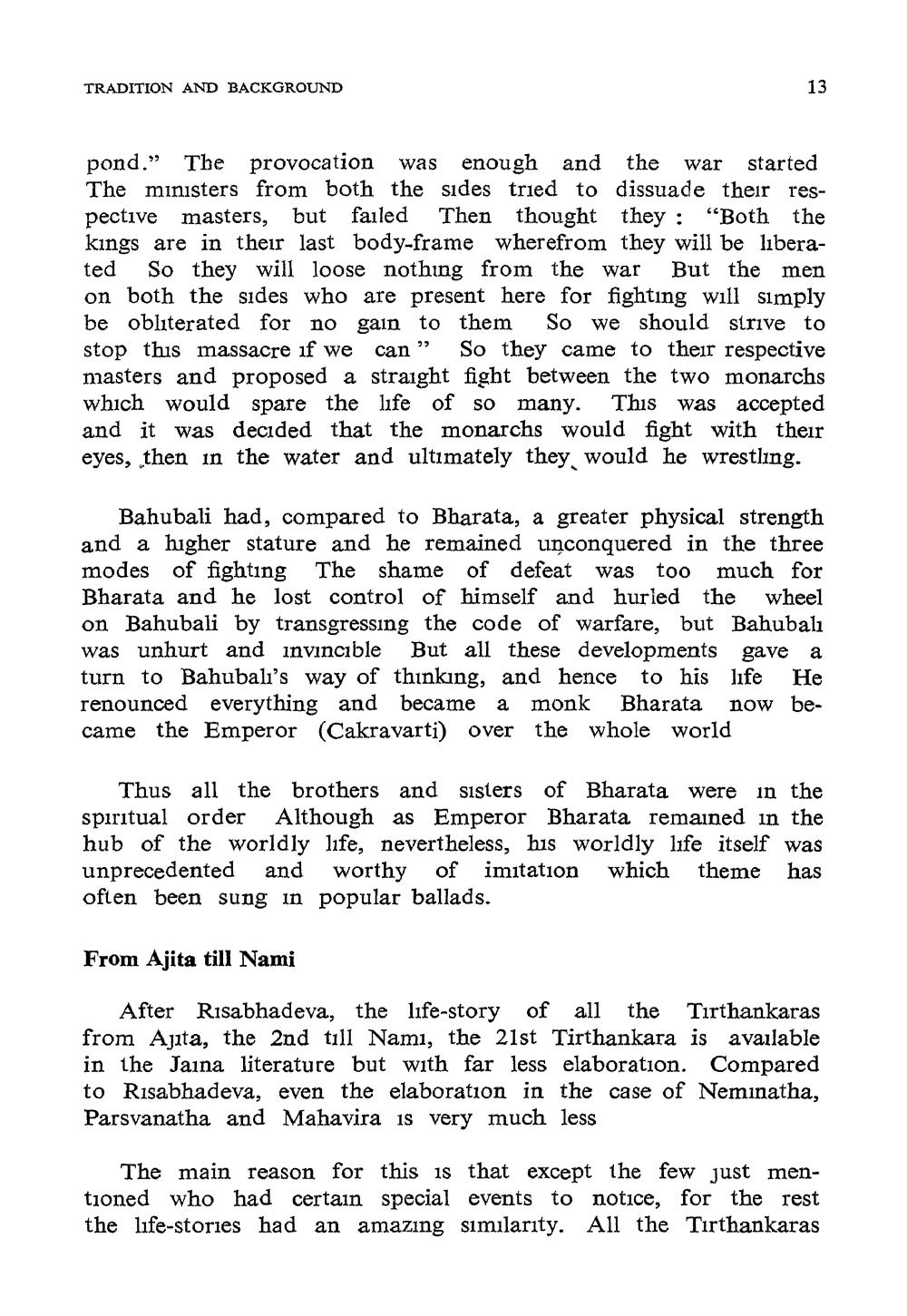________________
TRADITION AND BACKGROUND
pond." The provocation was enough and the war started The ministers from both the sides tried to dissuade their respective masters, but failed Then thought they : "Both the kings are in their last body-frame wherefrom they will be liberated So they will loose nothing from the war But the men on both the sides who are present here for fighting will simply be obliterated for no gain to them So we should strive to stop this massacre if we can” So they came to their respective masters and proposed a straight fight between the two monarchs which would spare the life of so many. This was accepted and it was decided that the monarchs would fight with their eyes, then in the water and ultimately they would he wrestling.
Bahubali had, compared to Bharata, a greater physical strength and a higher stature and he remained unconquered in the three modes of fighting The shame of defeat was too much for Bharata and he lost control of himself and hurled the wheel on Bahubali by transgressing the code of warfare, but Bahubali was unhurt and invincible But all these developments gave a turn to Bahubali's way of thinking, and hence to his life He renounced everything and became a monk Bharata now became the Emperor (Cakravarti) over the whole world
Thus all the brothers and sisters of Bharata were in the spiritual order Although as Emperor Bharata remained in the hub of the worldly life, nevertheless, his worldly life itself was unprecedented and worthy of imitation which theme has often been sung in popular ballads.
From Ajita till Nami
After Risabhadeva, the life-story of all the Tirthankaras from Ajita, the 2nd till Namı, the 21st Tirthankara is available in the Jaina literature but with far less elaboration. Compared to Risabhadeva, even the elaboration in the case of Neminatha, Parsvanatha and Mahavira is very much less
The main reason for this is that except the few just mentioned who had certain special events to notice, for the rest the life-stories had an amazing similarity. All the Tirthankaras




